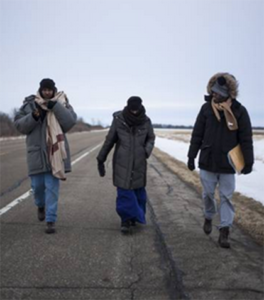Canada gives permanency to asylum seekers on COVID front lines
The Canadian government is granting permanent residency to asylum seekers who have worked on the front lines of the COVID-19 pandemic, caring for patients in hospitals and long-term care homes.
Announcing the program in Montreal, Canada’s Immigration Minister Marco Mendicino said the program is a way to thank those who “put themselves at the greatest risk” of contracting the coronavirus.
 But the move is a compromise with the province of Quebec, where most of the affected asylum seekers live and which has an agreement with Ottawa to oversee immigration. The program will grant permanent residency to people if they have worked in a hospital or other health-care institution and meet other eligibility requirements.
But the move is a compromise with the province of Quebec, where most of the affected asylum seekers live and which has an agreement with Ottawa to oversee immigration. The program will grant permanent residency to people if they have worked in a hospital or other health-care institution and meet other eligibility requirements.
The decision will affect about 1,000 claimants across Canada.
“This is an exceptional measure, in exceptional times, in recognition of exceptional service,”Mr Mendicino told local media.
Those working in hospitals and understaffed care homes risked exposure to COVID-19 — sometimes with deadly consequences — and have come to be known as “guardian angels” in Quebec.
The majority of deaths related to the disease have occurred in the Quebec’s aged and long-term care homes.
To be eligible for permanent residency, asylum seekers must: have applied for asylum before March 13 and have a work permit and have worked in patient care at a health-care institution for at least 120 hours between March 13 and August 14.
They also must have had six months of experience in patient care at a health-care institution by Aug. 31, 2021.
Canada has seen a large influx of asylum seekers in recent years as US policies towards irregular immigrants have turned most hostile under the Trump administration.
In August 2017 the border between Quebec and New York State saw an influx of up to 500 crossings each day outside of official ports of entry by people seeking asylum in Canada.
Estimates of irregular immigrants in Canada range between 35,000 and 120,000.












